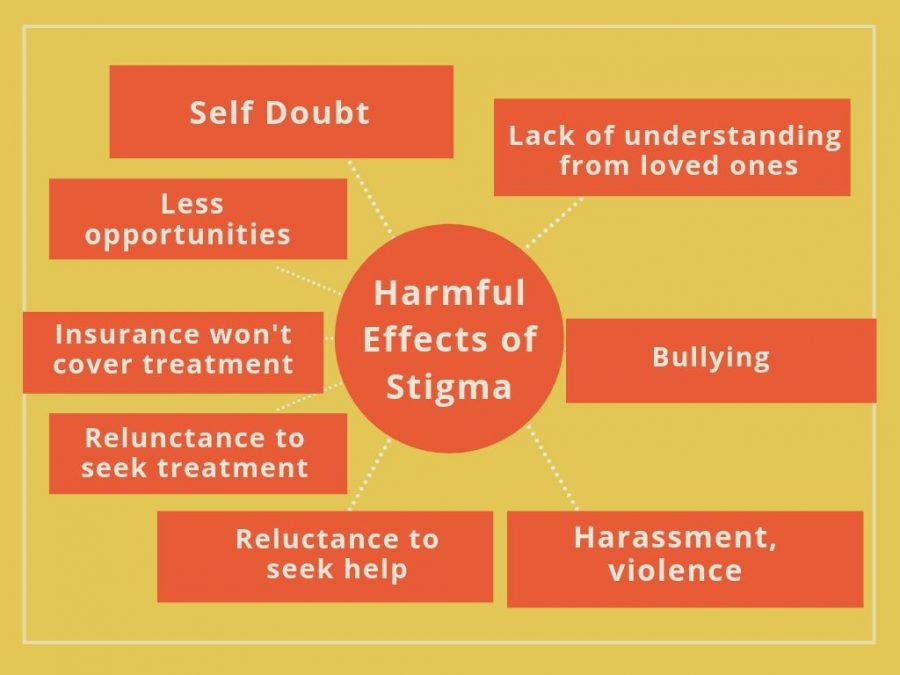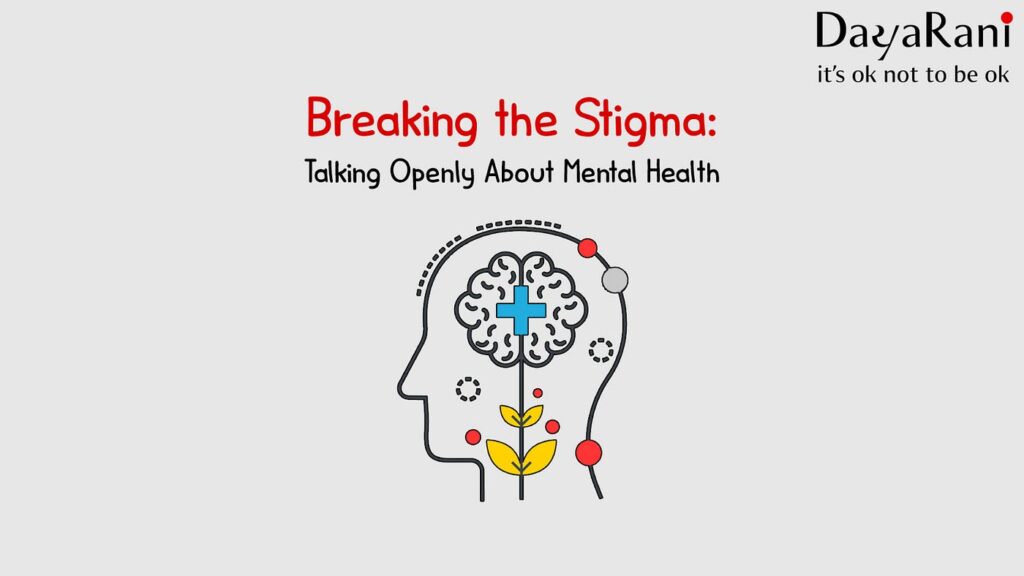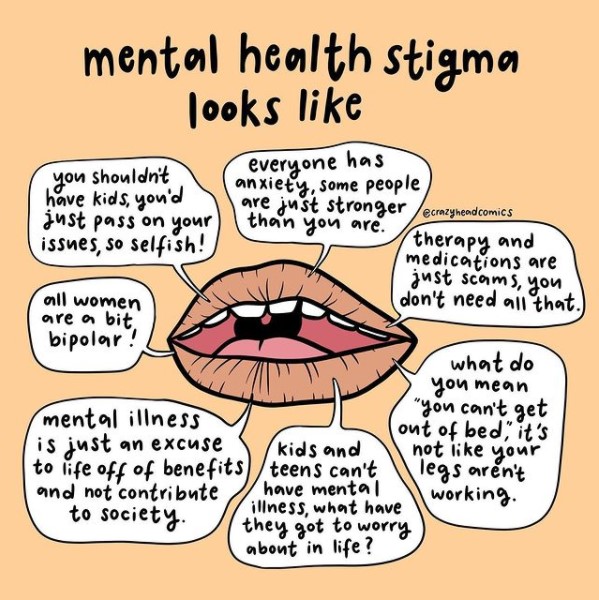Understanding Mental Health Stigma
It is time to debunk the stigma surrounding mental health! As we explore this topic, we will reveal the reasons for its presence and its implications. Mental health stigma involves society’s negative beliefs and attitudes towards those dealing with mental health issues. These misunderstandings can lead to discrimination, social isolation, and obstacles in accessing support. Let’s dismantle these barriers and work towards a society that embraces, accepts, and supports mental health. [1][2]
Overview of mental health stigma
Dealing with mental health stigma is akin to existing in a realm filled with misconceptions and false judgments. The lack of understanding and acceptance in society has hindered those in need of help and care. However, it is time to shift this narrative. By addressing the misunderstandings, consequences, and methods to combat mental health stigma, we can develop a more empathetic and encouraging community for all individuals. Let’s embark on this journey together to uncover the truth! [3][4]

Common misconceptions about mental health
As someone who advocates for mental health, I have encountered some common misunderstandings that make me both shake my head and laugh. Here are a few I would like to clarify:
- Having mental health problems does not indicate weakness. Mental health issues do not discriminate based on one’s strength or character.
- Believing that asking for help is a sign of being “crazy” is incorrect. In reality, reaching out for support is a courageous and proactive way to improve your well-being.
- Mental health issues should not be seen as temporary, as they are real and should never be trivialized.
- Mental health problems can impact individuals from all different backgrounds, regardless of age or lifestyle.
Let’s address these misunderstandings and build a world that embraces mental health with understanding and compassion. [5][6]
The Impact of Mental Health Stigma on Individuals
The stigma surrounding mental health can greatly affect people like myself, causing feelings of isolation and reluctance to seek assistance. The fear of being judged or discriminated against can hinder us from discussing our difficulties and getting the help we require. It is essential to break down these barriers and establish a society where everyone can feel at ease and supported in their path towards recovery. [7][8]
Effects of mental health stigma on individuals
Dealing with the stigma associated with mental health can be extremely difficult. It can cause feelings of embarrassment, loneliness, and insecurity. It can also prevent people from getting the assistance they require. Stigma can exacerbate the effects of mental health issues and impede the process of healing. We must collaborate to eliminate these obstacles and cultivate a community where everyone feels acknowledged and assisted in their mental health journey. [9][10]

Barriers to seeking help and support
Some obstacles may prevent us from seeking help and support for our mental health. These barriers could include the fear of judgment or stigma, as well as a lack of knowledge about the resources and support systems that are available. However, it is important to remember that asking for help is a sign of strength, not weakness. Let’s work together to eliminate these barriers and create a culture where seeking help and support is accepted and promoted. [11][12]
Promoting Mental Health Awareness
I believe that educating others and having honest discussions are key in raising awareness about mental health. By discussing the importance of self-care and sharing information about mental health, we can remove obstacles and inspire others to put their well-being first. Let’s advocate for the significance of mental health and emphasize that seeking help is a courageous act. Together, we can build a supportive and empathetic world where everyone feels valued [13][14]

Educational initiatives to raise awareness
I have seen firsthand how educational programs can make a difference in increasing awareness about mental health. Whether through in-person workshops, online courses, or seminars, these initiatives offer important information, resources, and support to help individuals better comprehend and care for their mental health. By empowering people with the right knowledge and encouraging understanding, these programs are tackling the stigma surrounding mental health step by step. [15][16]
Importance of open conversations about mental health
Open discussions about mental health are crucial as they help to dismantle stigma and foster a supportive atmosphere. These conversations serve to normalize struggles with mental health and promote empathy and understanding. By sharing our own experiences and actively listening to others, we can establish a safe environment for individuals to seek assistance and encouragement. Therefore, it is important that we engage in conversations, lend an ear, and offer support as we strive towards well-being together. [17][18]
Breaking Down Mental Health Stigma in Society
It is essential to dismantle the negative beliefs about mental health in society in order to promote a more empathetic and compassionate world. By educating and raising awareness, we can challenge stereotypes and discrimination. By sharing our own stories, we can show that mental health issues affect everyone. Let’s unite to support and show empathy to those facing mental health challenges, as we are all in this together on this journey. [19][20]
Challenging stereotypes and discrimination
It is crucial to address stereotypes and discrimination to reduce the stigma surrounding mental health. By sharing personal experiences and pushing for change, we can tackle the misunderstandings surrounding mental health. The goal is to prove that individuals with mental health conditions should not be solely identified by their diagnosis, but by their talents and abilities. Let’s unite to build a society where all individuals are treated with compassion, comprehension, and dignity. [21][22]
Creating supportive environments for mental health
It is highly important to establish environments that are supportive of mental health in order to reduce stigma and improve overall well-being. Encouraging empathy, understanding, and inclusivity is essential. By providing safe spaces where people can freely share their thoughts and feelings, we can promote open communication and foster a sense of community. Supporting mental health programs, educating ourselves, and showing compassion towards others can contribute to creating a positive and supportive atmosphere for all. Working together, we can make a positive impact and eradicate the stigma associated with mental health. [23][24]
Overcoming Personal Stigma
Ways to combat personal stigma involve changing how we think and feel about mental health. I have found that educating myself about mental health issues and pushing back against negative thoughts has been beneficial. Seeking help from loved ones or a therapist has also played a key role in my progress. Showing myself kindness and recognizing that asking for help shows strength has been empowering. It is important to remember that we are not defined by our mental health struggles and that we all deserve love and acceptance. [25][26]

Strategies for coping with internalized mental health stigma
In terms of confronting internalized stigma surrounding mental health, I have discovered some effective strategies that have worked well for me. One helpful approach is to challenge negative self-talk and instead focus on positive affirmations. In addition, having a supportive and understanding community around me has been extremely important. It is important to remember that it is okay to seek help when necessary. You are not alone in this process! [27][28]
Seeking help and practicing self-compassion
Overcoming the stigma surrounding mental health includes recognizing the value of reaching out for help and practicing self-compassion. I came to understand that seeking assistance demonstrates courage, not vulnerability. The support of therapists, support groups, or friends is essential for maintaining good mental health. It is equally important to show ourselves kindness and understanding, acknowledging our challenges. It is vital to be gentle with ourselves, seek help when required, and approach mental health and well-being in a positive manner. [29][30]
Conclusion
In conclusion, it is important to address the stigma surrounding mental health in order to promote a society that values well-being and spiritual growth. By challenging misunderstandings, encouraging open dialogue, and offering assistance to those in need, we can break down obstacles and establish a culture that values mental health. Let’s strive for a future where everyone feels supported and empowered in their quest for mental well-being. Just remember, you are never alone in this journey. [31][32]
The importance of de-stigmatizing mental health
It is important to remove the negative perception associated with mental health to encourage people to seek help and support without judgement. By eliminating stigma, we can promote open discussions and acceptance, challenge misconceptions and educate society about mental health. Together, let’s strive to create a culture that values mental well-being and encourages a healthier and happier future. [33][34]
Resources for mental health support and advocacy
I understand the importance of having access to resources for mental health support and advocacy. That’s why I am sharing a list of organizations and platforms compiled by ConscientiaMD that can provide guidance, information, and assistance. From helplines and online communities to therapy services and mental health campaigns, these resources offer a wealth of support for individuals seeking help or looking to advocate for mental health awareness. Remember, you are never alone in your journey towards well-being! Reach out and explore these resources to find the support you need. [35][36]

